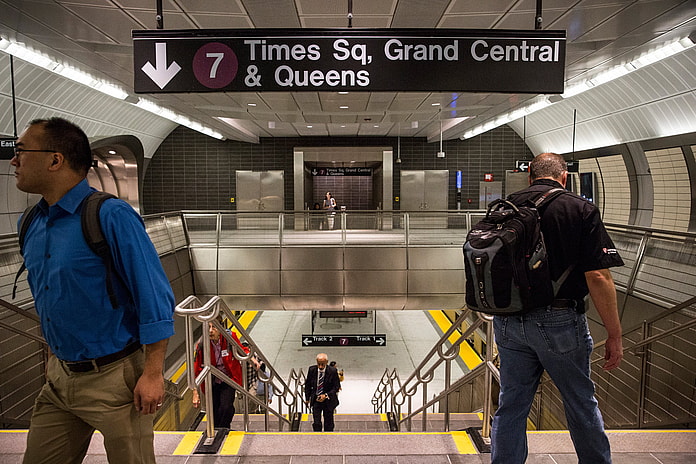[griojw id=”Kr9kLkW5″ playerid=””]
The coronavirus pandemic has made New York transit workers petri dishes as some have died or tested positive due to the highly transmissible virus.
According to The New York Times, 41 Metropolitan Transit Authority workers have died since the crisis began. 1500 have tested positive and more than 5000 are quarantining at home. Among those who tested positive is MTA’s chairman and CEO, Patrick Foye.
Though no racial breakdown was provided, many of the MTA’s 74,000 employees are Black or Hispanic. The City reported that most of the reported deaths, 33 at the time, were bus drivers.
READ MORE: Brooklyn YMCA employee dies of coronavirus
“Our heroic workers come to work every day during this unprecedented public health crisis so that other essential workers like doctors, nurses, pharmacists, grocers, and food delivery workers can do their jobs,” Kev Lovett, an MTA spokesperson told The City.
“We greatly mourn those we’ve lost as we continue to do all we can to protect our workers and customers.”

However, MTA workers told Times that the agency was slow to respond to social distancing and cleaning imperatives to the point that many employees were forced to improvise, bringing in their own gloves and cleaning supplies and limiting customer interaction. Working in a customer-facing industry and in close quarters at bus and train depots left them vulnerable to contracting the virus.
READ MORE: Tyler Perry pays groceries for elderly amid coronavirus pandemic
“Daily service can barely be maintained right now, and soon they’re not going to have the manpower to run these trains at all,” Canella Gomez, a train operator told the Times. “The M.T.A. dropped the ball with this. They let us get sick on the job. Now it’s too late.”
Because COVID-19 and New York State’s stay-at-home order, ridership on the sprawling subway system, which serves Manhattan and the boroughs of Brooklyn, the Bronx, Queens, and Staten Island has been down. The MTA has been forced to reduce service even beyond the 25% in their initial emergency plan.
Frontline workers in a number of public service jobs nationwide, many of who are Black or minority, have been hit hard by the coronavirus. In Philadelphia, where three maintenance workers have died, the city has moved to limit its SEPTA public transit service to a “lifeline” schedule for use to essential workers.

